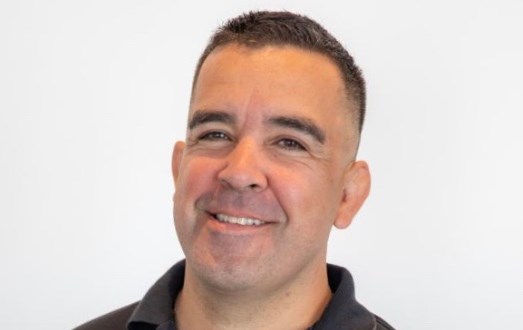Semiahmoo First Nation Chief Harley Chappell says a new police force in Surrey can provide a blank slate for a new Indigenous policing strategy.
The recently minted Surrey Police Board, to which Chappell is a member, announced October 15 it has approved the development of an “indigenization strategy” that will aim to “ensure the priorities and perspectives of Surrey’s Indigenous population are built into the foundation” of the new force.
As such, the long-term goal in Surrey will be two-fold: reducing crimes committed against Indigenous people and eliminating their overrepresentation within the criminal justice system.
“This is a critical first step towards reconciliation in policing and an opportunity to reimagine what the relationship between Indigenous groups and police services can look like,” said Chappell via a statement.
“This is a once in a lifetime opportunity to build Indigenous strategies, perspectives and priorities into the foundation of a policing model, rather than imposing an existing policing structure on Indigenous communities.”
The indigenization strategy is one of the first significant policy items to be approved by the board, which held its third meeting last week.
The Surrey Police Service is set to replace the Surrey RCMP once a police chief is hired, officers are recruited and trained and capital infrastructure, such as IT systems, are in place. A 2018 report to Surrey city council suggested April 2021 to be the launch date; however, the hiring of a chief is over one year late.
The police transition got off to a rocky start with local Indigenous people, including Chappell’s complaint last March that Surrey’s two First Nations groups, the Semiahmoo and Katzie people, had yet to be consulted on a new force. Chappell was subsequently appointed to the board by the provincial government.
According to the board, Surrey is the home to 22% of Metro Vancouver’s urban Indigenous population.
Adopting the strategy will be in accordance with the recommendations of Canada’s Truth and Reconciliation Commission’s Calls to Action and the United Nations Declaration on the Rights of Indigenous Peoples (UNDRIP), which the board states “emphasize(s) the importance of acknowledging the legacy of systemic racism and inequality for Indigenous people in Canada.”
“The Police Board recognizes this is a process that can only move forward with an acknowledgement of the painful legacy of Indigenous people’s experience with policing in Canada, and that a community policing model for the future must be built in consultation with Indigenous people to be truly effective, accountable and responsive.”
Joanne Mills, executive director, Fraser Region Aboriginal Friendship Centre Association, said a police strategy for Indigenous people in Surrey should include mandatory diversity training, cultural education and a complaints process that includes elders and values “learning, truth and fairness.”
Mills told the board last week that Surrey’s police officers should be well educated on missing and murdered Indigenous people, past sterilization programs, residential schools, the “60s Scoop” foster program and protests over land rights.
Surrey’s board must also consider the ongoing provincial Committee on Reforming the Police Act that will examine, among other things, systemic racism within police agencies and whether measures are necessary to ensure a modernized Police Act is consistent with UNDRIP.
Policing by the RCMP of Indigenous communities has been at the forefront of national news in 2020, first with enforcement action against Wet’suwet’en people protesting a new pipeline in Northern B.C. and, more recently, controversy surrounding the efforts by the RCMP to protect a First Nations lobster fishery in Nova Scotia.
A recent Angus Reid Institute poll on perceptions of policing found Indigenous people are more likely to feel less secure around police compared with Caucasians (24% and 14%, respectively).
It is yet to be seen if Surrey could face its own protests, as the Trans Mountain pipeline expansion begins to be constructed this fall along the South Fraser Perimeter Highway, just south of reserve land for the Katzie people.
The Katzie have previously spoken out against the project, according to the National Observer. The Katzie also expressed concerns about the pipeline nudging up against the Fraser River, near Barnston Island, at an October 24, 2014, National Energy Board hearing.
Katzie Chief Grace Cunningham and Chappell did not respond Wednesday to an opportunity to comment further on the strategy.



